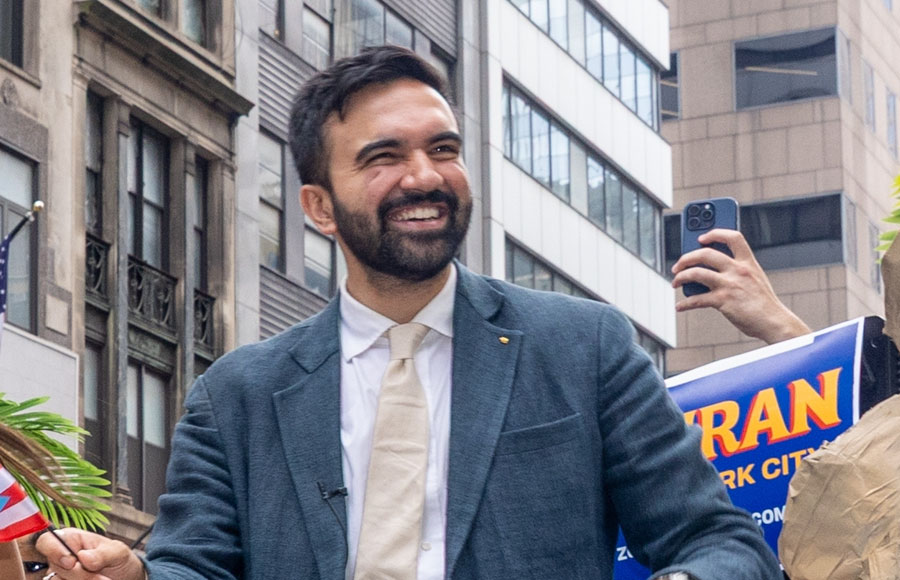
NEW YORK, NY – In a dramatic political upset that is sending shockwaves through New York politics, progressive State Assemblymember Zohran Mamdani has defeated former Governor Andrew Cuomo in the Democratic primary for New York City mayor. The 33-year-old Queens lawmaker secured a decisive lead in first-choice ballots under the city’s ranked-choice voting system, prompting Cuomo to concede before tabulations concluded.
Mamdani, who represents parts of western Queens, ran on a bold left-wing platform that included sweeping policies such as free public transit, a $30 minimum wage by 2030, universal childcare, and significant investment in public housing and gender-affirming healthcare. His grassroots campaign drew strong support from progressive coalitions, including endorsements from high-profile figures like Bernie Sanders and Alexandria Ocasio-Cortez.
Cuomo, who had attempted a political comeback after resigning from the governorship in 2021, ran a heavily funded campaign backed by establishment donors and major unions. Despite raising over $25 million and receiving outside support from corporate-linked political action committees, Cuomo’s centrist platform failed to connect with the city’s increasingly progressive Democratic electorate.
The election marks a major generational and ideological shift in New York City politics. Voter turnout approached record levels for a mayoral primary, with energized participation from younger, diverse communities – particularly in Queens and Brooklyn.
While Cuomo has not ruled out continuing in the general election as an independent, early reports suggest he may exit the race entirely. If he does remain in contention, he would join a crowded field that includes Mamdani, Republican Curtis Sliwa, and incumbent Mayor Eric Adams, who is running on a third-party line following his split from the Democratic establishment.
Mamdani’s victory sets the stage for a potential transformation of City Hall’s priorities. If elected mayor in November, he would become the most progressive executive in the city’s modern history – placing issues like rent control, public ownership, and social equity at the forefront of urban governance.
As of now, ranked-choice tabulations continue, but Mamdani’s margin appears strong enough to hold through any redistribution of second- and third-choice votes.
This election is being closely watched across the country as a barometer of the Democratic Party’s internal divisions, with national implications for the 2026 midterms.
Top Questions About Zohran Mamdani’s Mayoral Primary Victory
1. Who is Zohran Mamdani?
Zohran Mamdani is a 33-year-old New York State Assemblymember from Queens. He is known for his democratic socialist views and progressive policy positions, including housing justice, transit reform, and income equity.
2. How did Mamdani defeat Andrew Cuomo?
Mamdani won the Democratic primary by securing a strong lead in first-choice votes under New York City’s ranked-choice voting system. His grassroots support and progressive platform helped him overcome Cuomo’s well-funded campaign.
3. What were Mamdani’s key campaign promises?
He campaigned on a $30 minimum wage by 2030, free public transit, rent freezes, universal childcare, city-owned grocery stores, and a $65 million investment in gender-affirming healthcare.
4. What happens to Cuomo now?
While Cuomo conceded the primary, he retains the option to run as an independent in the general election. However, reports indicate he is likely to drop out of the race entirely.
5. Who else is running in the general election?
The general election field currently includes Zohran Mamdani (Democrat), Curtis Sliwa (Republican), and Mayor Eric Adams (running on an independent line).
6. Why is this election significant?
Mamdani’s victory reflects a broader ideological shift within the Democratic Party, especially in urban centers like New York City. It also demonstrates the growing power of younger, more progressive voters.
7. What role did ranked-choice voting play in this result?
Ranked-choice voting allowed voters to list candidates in order of preference. Mamdani led in first-choice votes by a wide enough margin that his win became clear before final redistribution rounds.
8. What does this mean for New York City’s future?
If Mamdani wins the general election, his administration would likely focus on ambitious social programs, public ownership models, and equity-driven urban policies that could significantly reshape the city’s governance.


